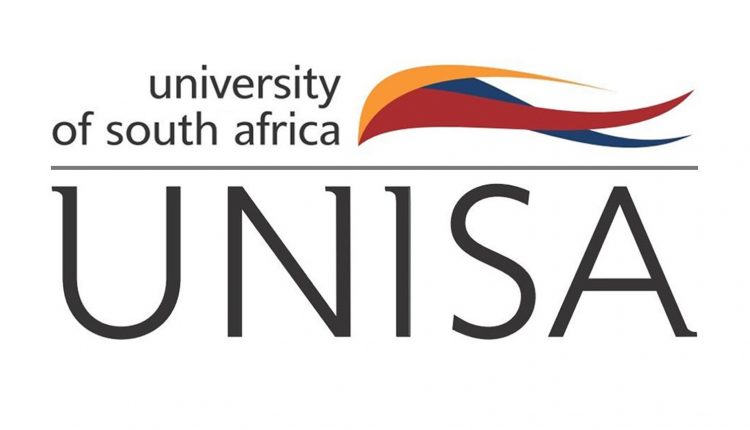University of South Africa Champions Inclusive Education Across All Levels
On 4 September 2024, Unisa staff members and students gathered online in a ground-breaking webinar hosted by the Systems and Policies Directorate under the Department of Leadership and Transformation to tackle the challenges students with disabilities are exposed to in higher learning institutions.
The webinar served as a platform to focus on the transformation dimensions, as inclusive post-school education is critical for the university to contribute to the 2030 UNESCO Agenda for Sustainable Development targets.
The presenters at the webinar pointed out that achieving equality in education access, benefits and success remains a challenge, especially for persons with disabilities, who face significant risks of exclusion and marginalisation.
The aims of the webinar were to
- review ongoing and emerging challenges in inclusive higher education for students with disabilities.
- exchange experiences on successful inclusive policies and practices.
- strengthen dialogue and cooperation among stakeholders at policy and practice levels.
Connecting the theme of the event to Unisa’s environment, Dr Malekutu Bopape, acting Executive Director in the Department of Leadership and Transformation, pointed out that the theme for this webinar offered an opportunity for the university to adopt new thinking and paradigms. “The theme talks to the attempt to transform the environment and culture at Unisa,” said Bopape.
In his keynote address, Advocate Ntshavheni Netshituni, the Deputy Director in Advocacy and Inclusive Policy for Persons with Disabilities at the Office of the Presidency, communicated the background and challenges in his experience of working with disability-related issues.
His presentation focused on the white paper on the rights of people with disabilities, which Cabinet approved on December 9, 2015. The white paper incorporates the 2030 Agenda for Sustainable Development and the National Development Plan’s vision and objectives, with the goal of achieving the specified targets by 2030. Netshituni believes that the white paper is a good guide to understanding the rights of persons with disabilities.
In addition, he said that policies come in different shapes and forms for a particular reason. “Your attitude in terms of policy development,” he stated, “should align to inclusion right from the onset. When you think about the policy, you must identify elements that need to be covered by the policy that are going to stand as inclusive measures. Your policy should include all previously disadvantaged individuals and groups to eliminate the bias that exists.”
A presentation from Vusi Mahlangu, a Director in the Department of Risk and Compliance, focused on disability-related policies from the perspective of compliance. Mahlangu mentioned that providing access and inclusivity would lead to employee satisfaction for colleagues with disabilities. “Everyone is equal before the law and has the right to equal protection and benefit of the law. It emphasises the right to basic education for everyone, which includes people with disabilities and showing that they have access to education without discrimination.”
Dr Tonny Matjila, who is currently employed as a Research Training and Development Officer at the School of Interdisciplinary Research and Graduate Studies in the College of Graduate Studies (CGS), stated that Unisa has a very good policy on students with disabilities as well as an implementation plan. “But there are some gaps that need attention to create a more inclusive environment,” he said.
Matjila further said the webinar was relevant because the theme was timely as it addressed the ongoing global effort to make education more inclusive, while also acknowledging existing policies. He stated that the voices of students with disabilities were critical in reviewing policies and implementing plans to create inclusive learning environments. “We need to adopt this digital accessibility standards for all, ongoing training and inclusive audits to promote this digital accessibility,” he said.
Dr Masentle Lengane, the acting Director for Systems and Policies Directorate in the Department of Leadership and Transformation, gave the closing remarks and thanked all delegates for attending the event
Then, Bheki Nxumalo, an acting Director in Unisa’s Advocacy and Resource Centre for Students with Disabilities (ARCSWiD), mentioned the support his office gives to students with disabilities. Nxumalo said: “We subscribe to the principle of equality and inclusion. We believe that our students should be given equal treatment like any other students and provided with equal opportunities.”
Student experiences
The programme proceeded with three students sharing their experiences. Thakane Masutha, a past student who works as an Administrative Officer in Supply Chain Management, spoke about the capacity of the directorate in dealing with students with disabilities as posing a challenge. Said Masutha: “You cannot formally and accordingly represent your constituency if you are not given or afforded an opportunity in the decision-making platforms of the university to highlight how the university needs to reasonably accommodate students with disabilities.”
Fatima Dollie, a student in the College of Education (CEDU), stated that the university should be a more welcoming and supportive place for all. She indicated that the university should create a welcoming environment where everyone is valued and respected and where equal opportunities exist, regardless of students’ differences. It involved actively removing barriers, whether physical, social or institutional, that might prevent someone from fully participating or feeling valued and included. Thuthula Sodumo, a student registered in the College of Human Sciences (CHS), shared her experiences that could serve as a guide to improve policies for students with disabilities and create an inclusive education for all.

